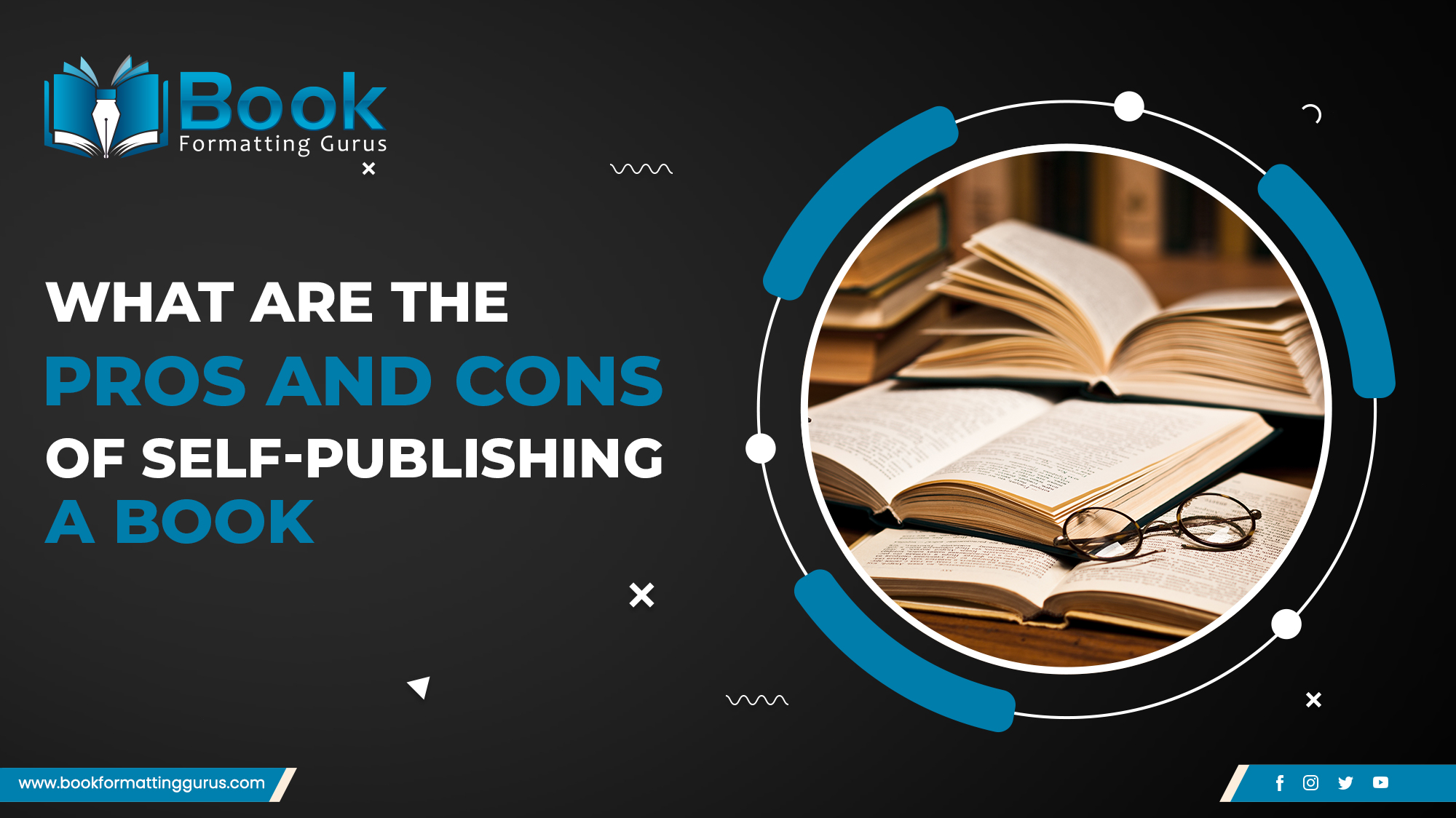What Are The Pros and Cons of Self-Publishing a Book

The people who are thinking about getting into the exciting world of self-publishing have to know the pros and cons about it. The pursuit of becoming a prosperous author is marked by exhilarating and dynamic experiences, which cultivate fostering personal growth and the possibility of significant economic benefits.
However, prior to making an extensive commitment, it is imperative to thoroughly evaluate the pros and cons of self-publishing to have a comprehensive understanding of the endeavor and determine if it aligns with your aspirations in the realm of writing. Engaging with top-quality book marketing services can be instrumental in navigating this landscape, ensuring your work not only sees the light of day but reaches your intended audience effectively and efficiently.
Pros of Self-Publishing
-
Telling Your Story with creative freedom The autonomy associated with self-publishing notably allows authors to exercise complete creative control over their literary works. The conventional publishing industry is characterized by the presence of intermediaries who possess the authority to express their perspectives on several aspects of a book, including its content, book cover, and even its title.
With the support of the best book editing agency, authors can ensure their content is polished and audience ready. This professional touch not only refines the work but also enhances its marketability. Upon successful commercialization of the book, authors can effectively demonstrate that their unique conceptualization of the book has truly achieved a noteworthy accomplishment in the publishing realm.
-
Increased Royalty for YouAmazon's independent authors can earn royalties of up to 70% of their books' selling prices. A typical publisher would provide you with something very different from this. Self-publishing has several benefits. In a conventional publishing contract, the percentage of royalties paid out is typically between 7% and 25%.
Alternatively, you may utilize a model like Amazon's print-on-demand service. The model suggests a figure closer to 70%. The bulk of the profits will still go to you, but Amazon may deduct a small amount to cover printing, binding, and/or hosting fees.
-
Accelerated Publishing TrackAn integral aspect of a book contract entails the inclusion of a proficient team of designers and marketers who collaborate to guarantee the production of a publication of exceptional quality. While the advantages of collaboration on a wide scale are evident, it is important to acknowledge that the process may be challenging and time-intensive.
This is mostly attributed to the substantial volume of email correspondence that is required among oneself, the agent, and the in-house experts. Moreover, a small publishing company produces at least a few titles per year, whereas larger publishing houses produce hundreds. Your book must be incorporated into their larger publication and marketing schedule, so you will likely have to wait longer than a year for its release.
Cons of Self-Publishing
-
You’ll be More than Just a Writer In order to maximize the potential readership of your book, it is necessary to invest significant time and effort into several key strategies. These include the establishment and upkeep of a blog, the compilation of an email list, solicitation of reviews, promotion of the book on social media and book discounting platforms, contribution of articles to websites and blogs that can generate traffic to one's webpage, as well as distribution of the book through multiple platforms to enhance its visibility.
In this journey of self-publishing, integrating your literary work with a leading book ghostwriting company can transform your narrative and presentation, ensuring your story is not only told but is relayed in a manner that resonates, captivates, and ultimately, sells.
-
Everything Must Be Paid Fully At Your OutsetUnfortunately, starting a business that has the potential to generate revenue and profit requires an initial infusion of capital. No individual or entity provides services without compensation, including a proofreader, a professional editor, a book cover designer, a formatter, a website developer, an email list provider, and different expenses associated with book marketing.
Every service, from editing to design, comes at a cost. Embarking on the self-publishing route requires an upfront investment. However, this challenge is mitigated when authors collaborate with the best book publishers for hire, who streamline the publishing process, ensuring quality without the exorbitant costs. The publisher assumes the financial costs associated with editing, creating, producing, and marketing your book.
-
The Distribution Process is Difficult Books to StoresHowever, individuals who choose to self-publish encounter significant challenges in their efforts to distribute their books via mainstream bookstores. Bookstores commonly establish business relationships with distributors, who normally do not engage in commercial transactions with authors who have independently published their literary works.
Conclusion
Book’s self-publishing is both a challenging and rewarding journey. It offers authors creative freedom, higher royalty rates, and an opportunity to build a personal brand. However, it also comes with the hurdles of self-promotion, upfront costs, and distribution limitations. An invaluable ally in this journey can be expert book formatters, which ensures that the final product resonates with professionalism and aesthetic appeal. For aspiring authors, the key lies in assessing all these variables and deciding how to best leverage resources and skills. If utilized effectively, self-publishing can serve as a powerful tool to bring one’s literary vision to life, reaching readers and establishing a foothold in the competitive world of publishing.



